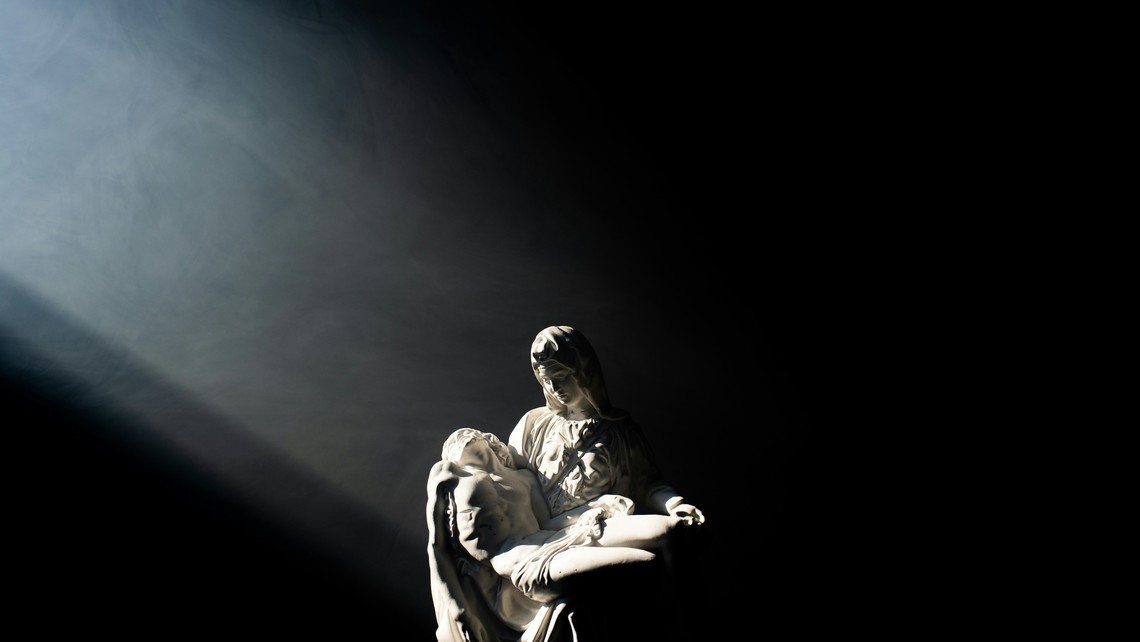
In the parable of the wise and foolish maidens[1], Jesus reminds his disciples about the importance of spiritual and moral preparation to enter the Kingdom of God. The sub-theme of this particular parable reveals the difference between foolishness and wisdom as revealed in the maidens who brought a sufficient amount of oil to keep their lanterns lit versus those who did not. The entire sequence reveals the importance of exercising prudential judgment at all times and of living our lives in accord with the will of God. Hence, the necessity to exercise right judgment is very important in relation to eternal life.
One can argue that the maidens who failed to bring the necessary oil should have exercised some common sense. This reminds me of a student who once argued with me that all you need is basic common sense to make good moral choices. On the surface, this sounds reasonable. However, I asked him how common sense develops in a person. Somewhat perplexed, he said, “through experience.” Then I asked him, what if the experiences that you base the foundation of your common sense on are flawed or disordered? He then said, “Disordered by whose standard?” I said, and here lies the dilemma, there must exist a natural order toward exercising good and avoiding evil. If the function of our life, I said, revolves around a personalized experience without an objective foundation consisting of truth, beauty, and goodness, then we have a dilemma.
Within the structure of the human being, comprised of body and soul, there lies the exercise of the intellect and will. These important moral characteristics are given to us by God to engage in the daily travails of life that require us to make a choice based on our properly formed moral conscience. Christ Himself provides us with an example of the exercise of both the intellect and will during his temptation in the desert. Even though Jesus is God, He reveals to us a proper way of seeking a path of moral sanctification over a path of carnal destruction.
As children made in God’s image and likeness, our intellect and will work in tandem with our conscience, which allows us to see the proper moral character of a situation. The use of common sense is actually a very valuable human characteristic if properly ordered toward the respect and dignity of the human person. The Catechism expounds on this thought,
The dignity of the human person implies and requires uprightness of moral conscience. Conscience includes the perception of the principles of morality (synderesis); their application in the given circumstances by practical discernment of reasons and goods; and finally, judgment about concrete acts yet to be performed or already performed. The truth about the moral good, stated in the law of reason, is recognized practically and concretely by the prudent judgment of conscience. We call that man prudent who chooses in conformity with this judgment.[2]
Prudence is defined as the virtue that disposes practical reason to discern our true good in every circumstance and to choose the right means of achieving it.[3] A specific character of the virtue of prudence is to know his journey or path and where it is leading one. This means that one cannot claim ignorance of someone or something because, through prudence, one has chosen to act a certain way. The virtue of prudence serves as a guide toward the exercise of the other cardinal virtues of temperance, fortitude, and justice. It is prudence that immediately guides the judgment of conscience.[4]
The risk involved in living a prudent life means that any claim of ignorance is immediately diffused by the virtue of prudence. The prudent man determines and directs his conduct in accordance with his judgment.[5]. Now the risk is that the person who exercises prudence is accountable for his or her actions. There is no one to blame but yourself. The act of moral and spiritual accountability is now at the forefront of the person to decide to pursue the good and avoid the evil, or vice versa. A significant risk in the exercise of prudence is whether the person in question can practice spiritual and physical self-control with themselves and others. Respect for another human being from an anthropological position is the hallmark of our identity as children of God.
The book of Proverbs reminds us that the wisdom of a prudent man is to discern his way,[6] Which means that he is mindful both of his behavior and demeanor towards others in his relationship with God. The risk of living a prudent life means that you can no longer place yourself in harm’s way because of your vices and sins. You have openly and willingly decided to shun the way of the world toward a life in Christ. The Prophet Amos provides us with a fitting conclusion about the risk of Prudence in reference to Israel’s sinful behavior,
They hate him who reproves in the gate, and they abhor him who speaks the truth. Therefore, because you trample upon the poor and take from him exactions of wheat, you have built houses of hewn stone, but you shall not dwell in them; you have planted pleasant vineyards, but you shall not drink their wine. For I know how many are your transgressions, and how great are your sins— you who afflict the righteous, who take a bribe, and turn aside the needy in the gate. Therefore, he who is prudent will keep silent in such a time, for it is an evil time. Seek good, and not evil, that you may live; and so the Lord, the God of hosts, will be with you, as you have said. Hate evil, and love good, and establish justice in the gate; it may be that the Lord, the God of hosts, will be gracious to the remnant of Joseph.[7]






